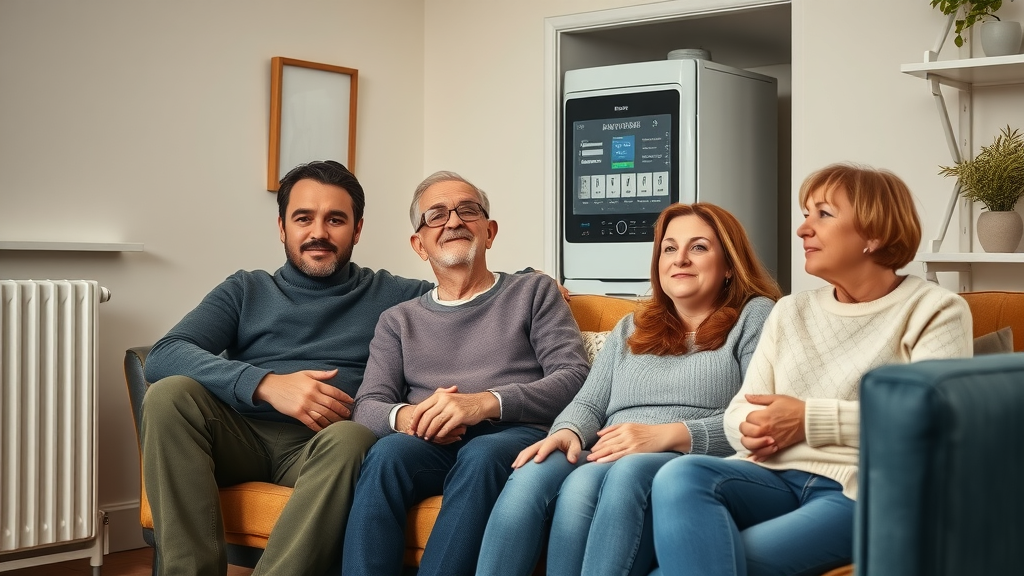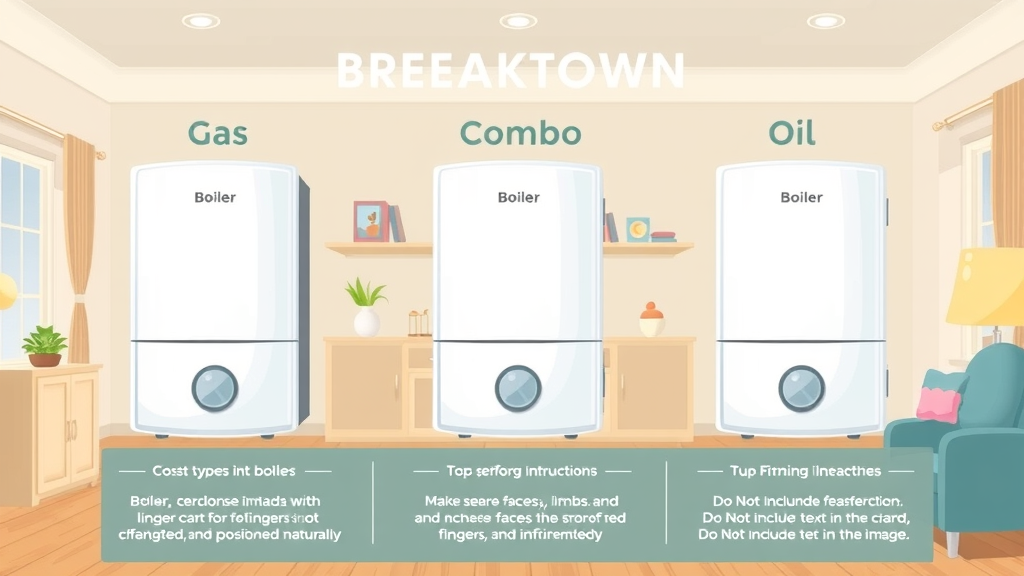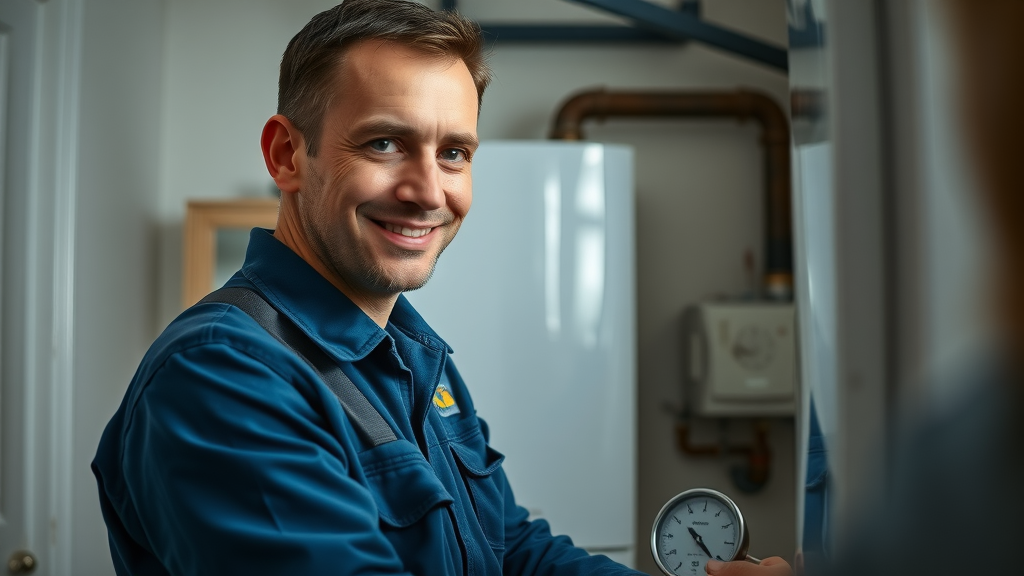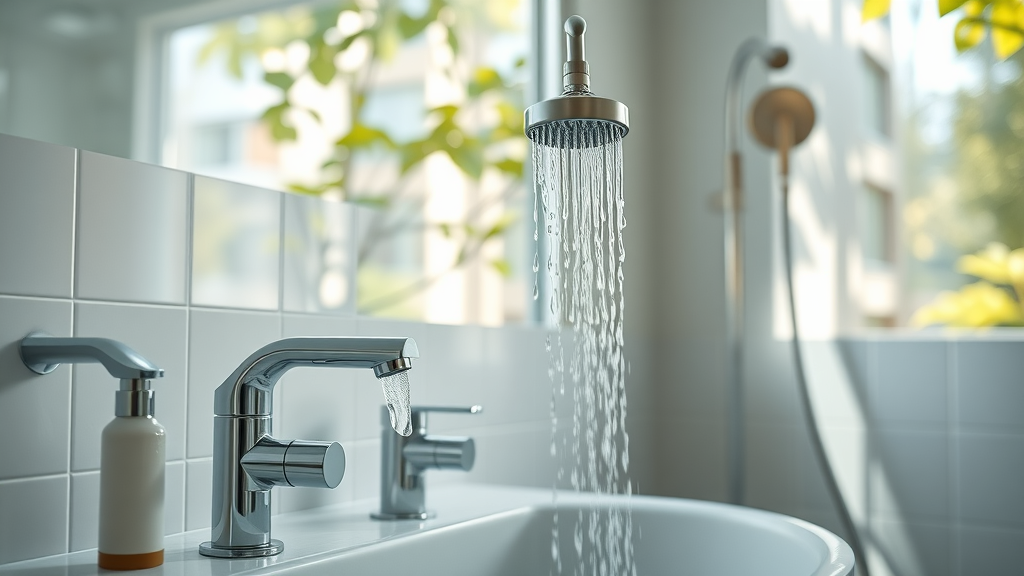Protecting your home’s warmth starts with the right knowledge—did you know an ignored boiler in Chesterfield is 70% more likely to require costly repairs within three years than a well-serviced one? In this guide, you’ll uncover the real figures behind boiler maintenance costs Chesterfield , what drives up prices, and the best way to avoid expensive surprises. Don't let heating emergencies catch you off-guard—equip yourself with the facts to ensure your boiler runs efficiently all year round.
Startling Facts About Boiler Maintenance Costs Chesterfield and Why Prevention Matters
Did you know an ignored boiler in Chesterfield is 70% more likely to require costly repairs within three years than a well-serviced one?
Ignoring your boiler maintenance could quickly turn peace of mind into financial and physical discomfort. Within the bustling town of Chesterfield, countless families unknowingly risk higher heating bills, unwanted breakdowns, and even dangerous faults by neglecting routine boiler servicing. The reality is, the cost of annual boiler servicing is minimal compared to the price of sudden, extensive boiler repairs.

By investing in regular checks—preferably by a gas safe registered heating engineer—you’re not only safeguarding your boiler’s reliability, but you’re also protecting your wallet from emergency boiler repair costs that can spiral well over £400. Prevention is by far the best way to manage boiler maintenance costs Chesterfield and keep your home comfortably heated, especially when the temperatures drop.
Why the Cost of Boiler Maintenance in Chesterfield Should Never Be Overlooked
Your central heating system isn’t just a home comfort—it’s a necessity. Factoring in boiler maintenance costs Chesterfield each year is crucial for both safety and long-term savings. A neglected boiler gradually loses efficiency, placing undue strain on components, raising energy bills, and risking sudden breakdowns that demand urgent—and costly— boiler repairs .
Additionally, local property insurers often require evidence of regular boiler servicing to maintain coverage. If you ignore annual boiler servicing, you could void warranties, miss early-warning signs of gas leaks or dangerous faults, and face larger repair bills down the line. Simply put, overlooking these costs could jeopardise both your comfort and financial security.
Understanding Boiler Maintenance Costs Chesterfield: What You’ll Discover
- How regular boiler servicing affects total boiler maintenance costs Chesterfield
- An inside look at leading boiler service providers and their pricing
- Frequently asked boiler service pricing questions
- The impact of boiler cover and gas safe registered engineers
- Steps to book efficient and affordable boiler repair in Chesterfield
Whether you own a gas boiler , combi boiler , or oil boiler , understanding what affects boiler maintenance costs Chesterfield can lead to smarter decisions—and lower bills. This guide helps you compare local rates, understand the value of boiler cover, and learn why only safe registered or Gas Safe engineers should work on your boiler and central heating.
We’ll highlight the types of boiler servicing available, what happens during a professional boiler service, and why the right cover is essential for reducing risk and hassle. With practical tips and expert advice, you’ll learn the best way to protect your boiler for minimal outlay and maximum peace of mind.
Breaking Down Boiler Maintenance Costs Chesterfield: What Influences The Price?
- Boiler type: gas boiler, combi boiler, oil boiler
- Frequency of boiler servicing
- Level of boiler cover
- Central heating system complexity
- Local Chesterfield market rates for heating engineers
- Emergency vs. schedule boiler repairs

The price you’ll pay for boiler maintenance in Chesterfield can swing widely depending on several key factors. The type of boiler —whether it’s a gas boiler , combi boiler , or oil boiler —impacts the average cost of servicing, with oil boilers typically costing the most due to specialised components and cleaning requirements.
The complexity of your central heating system and any advanced controls or add-ons can also push prices higher. If you have a large property or older heating technology, expect to budget a bit more. Local market rates vary too—Chesterfield boasts both national brands and efficient local firms, each with their own pricing tiers. Emergency callouts, especially in winter’s peak, will further increase boiler repair costs compared to planned, annual maintenance appointments.
Table: Boiler Maintenance Costs Chesterfield Compared with National Averages
| Boiler Type | Average Chesterfield Cost | National Average |
|---|---|---|
| Gas Boiler Service | £70 | £80 |
| Combi Boiler Service | £75 | £85 |
| Oil Boiler Service | £110 | £120 |
| Annual Boiler Cover (Standard) | £180 | £200 |
As the table reveals, Chesterfield households enjoy somewhat lower average maintenance costs compared to the national picture, making routine boiler servicing both accessible and cost-effective for local residents. Investing in standard boiler cover can also spread the cost into manageable monthly payments while safeguarding against costly repairs.
Why Regular Boiler Servicing Cuts Down Long-Term Boiler Maintenance Costs Chesterfield
Routine boiler servicing is proven to curb long-term expenses. A well-maintained gas boiler or oil boiler is far less likely to suffer catastrophic breakdowns, meaning fewer callouts and more predictable bills. During scheduled annual visits, engineers spot worn parts early, clean components to preserve efficiency, and ensure your central heating works at full capacity.
Skipping annual servicing, on the other hand, can lead to dangerous faults, voided warranties, and breakdowns at the worst possible moment. With the average emergency boiler repair topping £400, it’s clear why most Chesterfield families choose to book annual check-ups for both financial and emotional peace of mind.
How Annual Boiler Service Prevents Costly Boiler Repairs
‘Our average customer sees a 30% reduction in emergency call-outs after routine boiler servicing.’ – Edward Serrell, Gas Safe Engineer

When a Gas Safe registered heating engineer services your system annually, they don’t just tick boxes—they proactively prevent wear and tear that leads to breakdowns. Essential tasks, like testing safety devices and cleaning burners, ensure small issues are fixed before they become larger, expensive boiler repairs .
This proactive approach protects your household from the disruptive loss of heat or hot water, while stretching every pound on your energy bills by keeping your system efficient. Booking a yearly service is the best way to safeguard both your home’s warmth and your wallet in Chesterfield’s unpredictable weather.
What Happens During Proper Boiler Service in Chesterfield?
- Thorough gas boiler and boiler component inspections
- Testing boiler safety devices and gas safe compliance
- Central heating checks
- Efficient cleaning of parts
- Early detection of issues for inexpensive boiler repairs
Proper boiler servicing in Chesterfield goes well beyond a simple visual inspection. Qualified engineers start with a comprehensive assessment of your system, including the gas boiler or oil boiler itself, pipework, and controls. They’ll test critical boiler safety devices and document compliance with Gas Safe Register standards, ensuring your property and loved ones are protected.
Engineers then check your central heating output and look for uneven radiator heat, leaks, or pressure drops—red flags that could signal emerging problems. They’ll clean components like burners and heat exchangers for maximum efficiency, and highlight minor repairs before they spiral into emergencies. This professional approach transforms annual maintenance into smart, money-saving protection for your home and family.
Top Boiler Cover Options and Their Impact on Boiler Maintenance Costs Chesterfield
A reliable boiler cover policy is your safety net against surprise repair bills in Chesterfield. These monthly or annual plans can offset the costs of parts, labour, and even regular servicing—giving you invaluable peace of mind . Comparing options is crucial, as some providers include annual servicing while others only step in when breakdowns occur.
While national brands often offer higher coverage levels at a premium, many local Chesterfield firms provide cost-effective solutions tailored to your needs. Whether you have a new boiler, an older combi boiler, or require cover for an oil boiler , exploring available policies is the best way to budget for future maintenance and manage long-term costs effectively.
Comparing Boiler Cover Plans from Leading Chesterfield Providers
| Provider | Coverage Level | Monthly Cost |
|---|---|---|
| British Gas | Full Service & Repairs | £14 |
| Local Chesterfield Firm | Service Only | £10 |
| National Brand | Parts & Labour | £17 |

While the exact cost may vary based on your type of boiler and level of heating cover required, the table above gives real-world insight into your options. The right boiler cover can make all the difference in locking in predictable boiler maintenance costs Chesterfield and avoiding panic when something goes wrong.
Boiler Repairs and Emergency Boiler Repair Costs Chesterfield
- Average cost for urgent boiler repairs
- Possible extra charges for oil boilers and advanced systems
If your boiler fails unexpectedly, emergency boiler repair costs in Chesterfield can escalate rapidly—especially for more complex oil boiler or central heating systems. While a straightforward repair on a newer system may start around £180, dealing with an older unit, sophisticated controls, or out-of-hours breakdowns can exceed £400 once parts and labour are considered.
That’s why specialists consistently recommend annual boiler servicing —it’s the best way to avoid high callout fees and restore hot water and warmth before secondary issues arise. Addressing minor issues during routine service minimises the risk of emergencies, and often preserves your manufacturer warranty, thus controlling long-term maintenance costs.
How Gas Safe Registered Heating Engineers Affect Boiler Maintenance Costs
Only trust Gas Safe Registered engineers for your gas boiler repair and servicing in Chesterfield – safety and warranties depend on it.
In Chesterfield, ensuring your boiler repair or service is carried out by a Gas Safe Registered engineer isn’t just good practice—it’s the law for all gas boilers and vital for safety and insurance purposes. Choosing unregistered “cowboy” engineers can void your boiler and heating insurance and leave you exposed to future repair bills, dangerous gas leaks, and denied claims.
The best way to guarantee safe, cost-effective boiler servicing is always to make sure your engineer is officially on the Gas Safe Register . This not only protects your property and loved ones but also maintains the validity of warranties and keeps your maintenance costs predictable over the years.
The Role of Boiler Servicing in Energy Efficiency and Cost Reduction
One of the biggest hidden benefits of regular boiler servicing is its positive impact on energy consumption—and your utility bill. An efficient boiler uses less fuel to generate the same amount of heat and hot water, reducing both your carbon footprint and your costs.
Routine checks and cleaning prevent the gradual buildup of soot and limescale inside the system, which otherwise force your gas boiler or oil boiler to work harder. Consistent annual servicing can extend your system’s lifespan and preserve optimal performance throughout even the chilliest Chesterfield winters.
Boosting Central Heating Performance Through Annual Boiler Servicing Chesterfield
- Reduced fuel bills from efficient servicing
- Prolonged boiler lifespan
- Minimised risk of gas leaks and safety concerns

Annual boiler servicing supports not just your wallet but also your family’s safety by catching leaks, faults, or unsafe carbon monoxide emissions. With help from a gas safe registered engineer, you can extend the life of your central heating and enjoy worry-free warmth all season long.
Comparing the Cost: Boiler Service vs. Unexpected Boiler Repairs Chesterfield
| Service Type | Typical Cost | Risk & Warranty Impact |
|---|---|---|
| Annual Boiler Service | £60-£110 | Retains warranty, minimal risk |
| Boiler Repair (Major Issue) | £180-£400+ | Risk of breakdown, warranty void if unserviced |
Choosing routine boiler servicing over reactionary repairs isn’t just a matter of cost—it’s a powerful strategy for maintaining your central heating reliability and household peace of mind. The table above shows just how much you stand to save by investing in regular maintenance and boiler cover versus taking chances with expensive breakdowns.
List: Signs It’s Time to Book a Boiler Service or Boiler Repair in Chesterfield
- Noise from gas boiler or central heating
- Rising heating bills
- Intermittent hot water
- Boiler loss of pressure frequently
- Annual service is overdue

These warning signs are red flags that your gas boiler servicing is overdue or that urgent boiler repairs may be needed. Ignoring these signals can mean higher boiler maintenance costs Chesterfield as minor faults morph into major costly failures. If in doubt, book a call with a trusted, Gas Safe Registered heating engineer sooner rather than later—early intervention is always the most affordable solution.
People Also Ask: Frequently Queried Boiler Maintenance Costs Chesterfield
How much does a boiler service cost on average?
On average, a standard boiler service in Chesterfield costs between £70 and £110 , depending on whether you have a gas, combi, or oil boiler. Prices may vary by provider and system complexity, but Chesterfield’s rates are often slightly below the UK national average for annual boiler maintenance.
How much does an ideal boiler service cost?
An ideal boiler service —performed by a Gas Safe Registered engineer following manufacturer recommendations—usually costs £80-£100 in Chesterfield. This price covers a full inspection, boiler cleaning, testing of safety features, and a service certificate. For oil boilers or systems in need of significant cleaning or small repairs, costs may trend a bit higher.
How much does British Gas charge to service your boiler?
British Gas typically charges between £90 and £110 for a one-off boiler service in Chesterfield, with the price sometimes included in boiler cover packages. Discounted rates may apply for new cover plan signups, or in occasions where service is bundled with other home care products.
How often should a boiler system be serviced?
All boiler manufacturers and leading heating cover providers recommend servicing your boiler annually . Regular checks are particularly important for gas boilers and oil boilers, ensuring warranty compliance and maximum safety for your household. Skipping annual service visits increases breakdown risk and may invalidate boiler cover or insurance claims.
FAQs About Boiler Maintenance Costs Chesterfield
- Does having boiler cover affect out-of-pocket maintenance costs? Yes. Quality boiler cover policies reduce out-of-pocket spending by including parts, labour, and sometimes routine servicing—ideal for managing long-term boiler maintenance costs Chesterfield.
- Is gas safe registration necessary for every service? Absolutely. Every service involving gas appliances, including boiler repairs , must be performed by a Gas Safe Registered engineer to ensure legal compliance, safety, and warranty coverage.
- How can I spot heating engineer scams? Always request the engineer’s Gas Safe Register ID, check for genuine accreditations, read customer reviews, and beware of suspiciously low quotes. Reliable firms prioritise transparency and safety for your home.
Key Benefits of Investing in Regular Boiler Service for Chesterfield Homes
- Reduced possibility of emergency boiler repairs
- Greater energy efficiency means lower bills
- Safety for your household and property
- Compliance with warranty conditions and insurance policies
Expert Recommendations for Boiler Maintenance and Boiler Repairs Chesterfield
- Always use gas safe registered or safe registered engineers
- Book your next annual boiler service before winter
- Review boiler cover to protect against surprise repairs
How to Book an Affordable Boiler Maintenance Service or Boiler Repair in Chesterfield
- Compare quotes and coverage plans
- Request proof of Gas Safe registration
- Check customer reviews for your heating engineer
- Don’t delay if you suspect a fault—safe registered repairs are always best
Optimise Your Central Heating Now – Make the Most of Boiler Maintenance Costs Chesterfield
"Contact us today at Edward Serrell Plumbing and Heating and we will ensure your boiler is in top condition—protecting you against costly repairs, loss of heating, and emergency callouts in Chesterfield."
Act now: Schedule your annual boiler service, check your heating cover, and always insist on Gas Safe registered engineers to enjoy true peace of mind and lower long-term costs in Chesterfield.
Regular boiler maintenance is essential for ensuring the efficiency, safety, and longevity of your heating system. In Chesterfield, several reputable providers offer comprehensive boiler servicing and maintenance plans tailored to meet various needs and budgets.
Aqua Plumbing & Heating offers boiler cover plans starting at £11.95 per month, which include unlimited call-outs and an annual service valued at £78. Their plans are designed to prevent inconvenient breakdowns and ensure your home remains warm and comfortable. ( aquaplumbers.co.uk )
Blueflame Heatplan Ltd provides boiler cover plans beginning at £15.95 per month. Their comprehensive packages include an initial free service, unlimited call-outs, and annual servicing, offering peace of mind and financial protection against unexpected repair costs. ( blueflameheatplan.co.uk )
For those seeking individual servicing, Bumfords lists a standard boiler service at £89.99, with additional services such as LPG boiler servicing at £99.99 and oil boiler servicing at £129.99. These options cater to various boiler types and ensure thorough maintenance. ( bumfords.com )
Additionally, Paul Caton Gas & Oil Services emphasizes the importance of annual boiler servicing to maintain efficiency and safety. Their experienced Gas Safe engineers offer comprehensive services to keep your heating system in optimal condition. ( paulcatongasandoilservices.co.uk )
Investing in regular boiler servicing not only enhances performance but also helps in identifying potential issues early, reducing the risk of costly repairs and ensuring your home remains warm and safe throughout the year.
 Add Row
Add Row  Add
Add 




Write A Comment